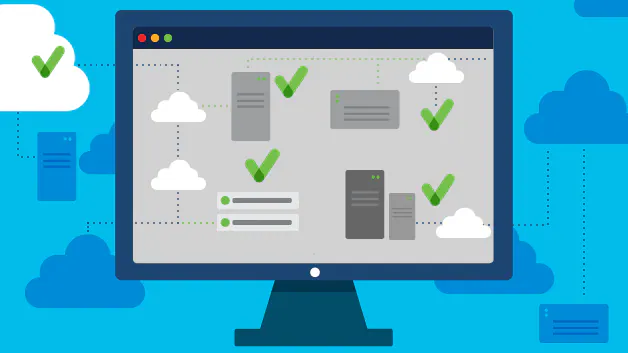Maximizing Performance: A Guide to Website Monitoring Apps and Network Uptime Monitors
Discover how website monitoring apps, network uptime monitors, and uptime services ensure your online presence remains uninterrupted. Learn about the importance of downtime monitoring and server uptime.
Posted by
 Sabyr Nurgaliyev
Sabyr Nurgaliyev
Introduction
In the digital age, maintaining a robust online presence is crucial for any business. Whether you're running an e-commerce platform, a blog, or a corporate website, uptime is everything. Website downtime can lead to lost revenue, a damaged reputation, and frustrated customers. This is where website monitoring apps and network uptime monitors come into play.
In this article, we will explore how these tools can help you keep your website running smoothly, the various features they offer, and why they are essential for any online business.
What is a Website Monitoring App?
A website monitoring app is a tool designed to track the performance of your website in real-time. These apps monitor various aspects of your website, including uptime, load times, and overall performance. They alert you when your website experiences issues, such as downtime or slow loading speeds, allowing you to address these problems promptly.
Key Features of Website Monitoring Apps
Website monitoring apps come with a range of features, including:
- Real-Time Alerts: Receive instant notifications if your website goes down.
- Performance Reports: Detailed reports on your website's performance over time.
- User Experience Monitoring: Tools to track how users are interacting with your website.
- Global Monitoring: Monitor your website from multiple locations around the world.
Importance of Network Uptime Monitors
A network uptime monitor is a tool that tracks the availability of your network and servers. It ensures that your network infrastructure is up and running, minimizing downtime and preventing potential disruptions.
Why You Need a Network Uptime Monitor
Network uptime monitors are essential for several reasons:
- Prevent Downtime: By monitoring your network's uptime, you can prevent unexpected outages.
- Improve Reliability: Ensure that your servers are always available to your users.
- Enhance Performance: Identify bottlenecks and areas for improvement in your network.
- Maintain Security: Detect and respond to potential security threats in real-time.
Understanding Uptime Services
Uptime services are specialized services that monitor your website and network to ensure maximum availability. These services often include both website monitoring apps and network uptime monitors, offering a comprehensive solution for maintaining your online presence.
How Uptime Services Work
Uptime services work by continuously monitoring your website and network. If an issue is detected, such as downtime or performance degradation, the service alerts you immediately. This allows you to take corrective action before the problem affects your users.
Benefits of Uptime Services
- 24/7 Monitoring: Your website is monitored around the clock, ensuring constant availability.
- Automatic Alerts: Receive notifications via email, SMS, or other channels when an issue arises.
- Detailed Reports: Access in-depth reports on your website's uptime and performance.
- Customizable Settings: Tailor the monitoring to fit your specific needs and requirements.
Downtime Monitors: Your First Line of Defense
A downtime monitor is a critical component of any uptime service. It keeps track of your website's availability and alerts you when it goes offline. Downtime monitors can be configured to check your website's status at regular intervals, ensuring that any issues are detected as soon as they occur.
Types of Downtime Monitors
There are several types of downtime monitors, including:
- Ping Monitors: These monitors check if your website's server is responding to requests.
- HTTP Monitors: These monitors check the status of your website by making HTTP requests.
- DNS Monitors: These monitors ensure that your website's DNS is resolving correctly.
Why Downtime Monitoring is Essential
Downtime monitoring is essential because:
- Minimizes Lost Revenue: By detecting downtime quickly, you can reduce the financial impact on your business.
- Protects Your Reputation: Ensure that your website is always available to your customers.
- Enhances User Experience: Prevent users from encountering errors when trying to access your website.
Server Uptime: Keeping Your Website Online
Server uptime refers to the amount of time that your server is operational without any interruptions. High server uptime is crucial for maintaining a reliable website. Downtime can occur for various reasons, including hardware failures, software bugs, or network issues.
How to Improve Server Uptime
Improving server uptime involves several strategies:
- Regular Maintenance: Perform routine maintenance on your servers to prevent issues.
- Redundant Systems: Implement redundant systems to ensure your website remains online even if one server fails.
- Load Balancing: Use load balancing to distribute traffic across multiple servers, reducing the strain on any single server.
- Monitoring Tools: Utilize server monitoring tools to keep track of your server's performance and uptime.
Website Monitoring Services: A Comprehensive Solution
Website monitoring services provide an all-in-one solution for maintaining your website's performance and availability. These services typically include a combination of website monitoring apps, network uptime monitors, and downtime monitors.
What to Look for in Website Monitoring Services
When choosing a website monitoring service, consider the following factors:
- Comprehensive Monitoring: Ensure the service monitors all aspects of your website and network.
- Customization Options: Look for services that allow you to customize the monitoring to fit your needs.
- Scalability: Choose a service that can grow with your business.
- Support: Opt for a service that offers robust customer support and assistance.
Conclusion
In today's digital world, maintaining a high level of website uptime is critical for the success of your online presence. By utilizing website monitoring apps, network uptime monitors, and uptime services, you can ensure that your website remains accessible, reliable, and secure. These tools not only help you monitor your website's performance but also allow you to take proactive measures to prevent downtime and enhance the user experience.
Investing in the right monitoring tools and services is a smart move for any business that relies on its online presence. By staying vigilant and addressing issues as they arise, you can maintain a seamless experience for your users and keep your website running smoothly.
FAQs
1. What is the difference between a website monitoring app and a downtime monitor?
A website monitoring app tracks overall website performance, including uptime, load times, and user experience, while a downtime monitor specifically tracks the availability of your website and alerts you when it goes offline.
2. How often should I check my server uptime?
It's recommended to check your server uptime continuously using automated tools to ensure maximum availability and to receive immediate alerts if any issues arise.
3. Can uptime services help with SEO?
Yes, maintaining high uptime and quick response times can positively impact your SEO rankings, as search engines favor websites that are reliable and provide a good user experience.
4. What should I do if my website goes down frequently?
If your website experiences frequent downtime, consider upgrading your hosting plan, improving your server infrastructure, and using a comprehensive monitoring service to identify and address the root causes.
5. How do website monitoring services alert me to issues?
Website monitoring services typically send alerts via email, SMS, or other communication channels whenever an issue is detected, allowing you to take immediate action.
Related Articles

Dive into the world of uptime services, downtime monitors, and network vigilance. Learn how to keep your servers running smoothly and your digital presence thriving in an always-on world.
 Sabyr NurgaliyevSep 8, 2024
Sabyr NurgaliyevSep 8, 2024
Dive into the world of uptime services, downtime monitors, and network vigilance. Learn how to keep your digital presence thriving 24/7 and why every second counts in the online realm.
 Sabyr NurgaliyevSep 7, 2024
Sabyr NurgaliyevSep 7, 2024
Dive into the world of uptime services and downtime monitors. Learn how to keep your servers running smoothly, maximize network uptime, and choose the right tools for your business.
 Sabyr NurgaliyevSep 6, 2024
Sabyr NurgaliyevSep 6, 2024
Discover the secrets of server uptime monitoring and learn how to keep your digital services running smoothly 24/7. Explore cutting-edge tools, best practices, and expert strategies for minimizing downtime and maximizing performance.
 Sabyr NurgaliyevAug 29, 2024
Sabyr NurgaliyevAug 29, 2024
Discover the top tools and strategies to keep your network and servers running smoothly, and learn how to minimize downtime.
 Sabyr NurgaliyevSep 4, 2024
Sabyr NurgaliyevSep 4, 2024
A deep dive into the world of network uptime monitors, downtime monitors, and server uptime. Discover how to keep your website online and your business thriving.
 Sabyr NurgaliyevAug 27, 2024
Sabyr NurgaliyevAug 27, 2024